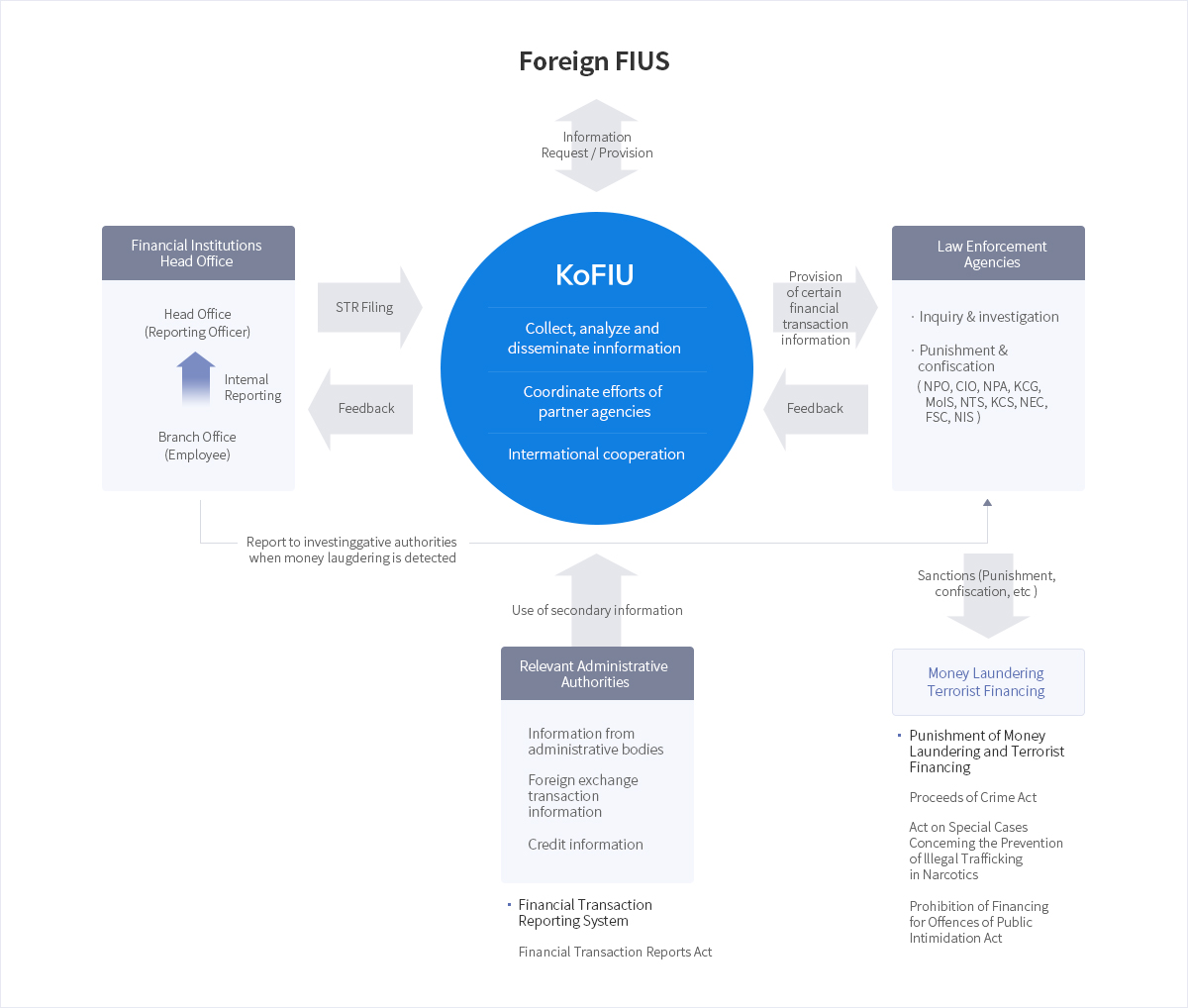AML/CFT Regime
AML/CFT Framework
The history of the AML/CFT system in Korea started with the establishment of the Korea Financial Intelligence Unit (KoFIU) and the enactment of the Financial Transaction Reports Act and the Proceeds of Crime Act in November 2001.
The KoFIU was established pursuant to Article 3 Paragraph 1 of the Financial Transaction Reports Act (FTRA) and to Article 5 of the Enforcement Decree of the FTRA in order to effectively implement an AML/CFT system.
The KoFIU was originally within the Ministry of Finance and Economy (MOFE), but, as a result of a government reorganization in February 2008, it was transferred to the Financial Services Commission (FSC). The KoFIU is staffed with AML/CFT experts from the FSC, the Ministry of Justice (MOJ), the National Police Agency (NPA), the National Tax Service (NTS), the Korea Customs Service (KCS), the Financial Supervisory Service (FSS), and other relevant law enforcement agencies.
The law guarantees the independence and autonomy of the KoFIU. The KoFIU works as an institutional link between financial institutions and law enforcement agencies by receiving suspicious transaction reports (STRs)from reporting entities, analyzing the STRs, and disseminating them to law enforcement agencies for further action. The KoFIU is also the primary organization responsible for AML/CFT policy formulation and implementation, AML/CFT supervision and the education of reporting entities.
The Financial Transaction Reports Act, which was enacted in November 2001, is a key AML/CFT law in Korea. It provides for the establishment and operation of the KoFIU, and the KoFIU’s authority to collect, analyze, and disseminate financial transaction information, preventive measures to be undertaken by financial institutions and casinos, such as CDD, STRs, and CTRs, and the establishment and operation of internal control systems.
The Proceeds of Crime Act (POCA), also enacted in November 2001, criminalizes money laundering and provides for the confiscation of criminal proceeds. Under Article 3 of POCA, any person who disguises the acquisition or disposition of criminal proceeds, disguises the origin of criminal proceeds, or conceals criminal proceeds is subject to imprisonment not exceeding five years or a fine not exceeding KRW 30 million. Article 8 of the POCA provides for the confiscation of criminal proceeds and Article 10 of the same Act provides for the confiscation of property of equivalent value to criminal proceeds.
AML/CFT Framework in Korea
